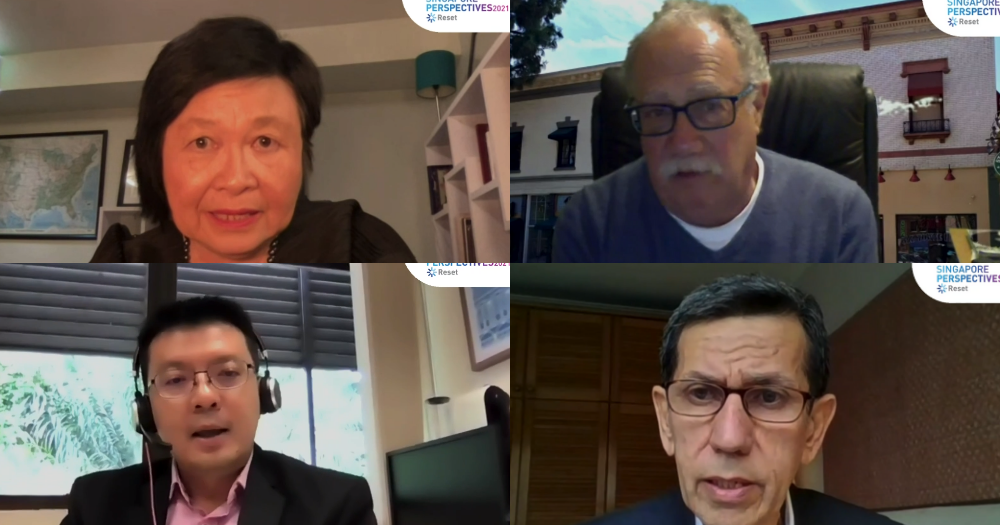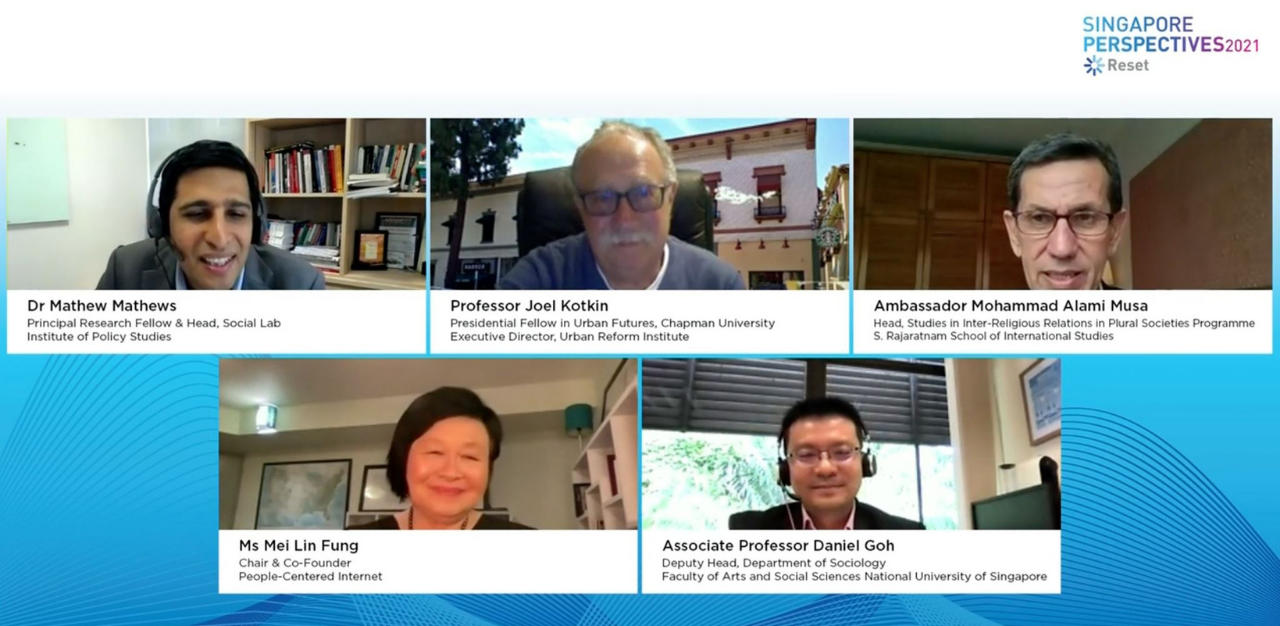Year on year, the Institute of Policy Studies’ (IPS) runs its annual flagship forum, Singapore Perspectives. In its 19th year running, this year’s forum was called “Reset”, and relievingly, it wasn’t just about Singapore recovering from COVID 19. 2020 was a loaded year for socio-political discourse in Singapore, with GE2020 challenging the fabric of society, amongst many of the other social arguments that had happened.

Rejected challenges against Section 377A, the Parti Liyani case, and the dehumanising treatment of migrant workers in Singapore leading to massive COVID 19 clusters only scratch the surface of what reigned in social conversations. Cancel culture also reared its head, whether ugly or not, with brands dropping Xiaxue for her derogatory views, and a certain yacht business deciding to shun trans people during its planning of an LGBT-themed event.
Pair all of that with Black Lives Matter spurring a long conversation on Chinese Privilege here, and you’ll mostly have the themes that made the crux of IPS’ forum this year, consisting of panelists who… well, seem to have lived in the US a fair bit, discussing Singapore.
Chinese Privilege is… “intellectual scarcity”
Different panelists had varied opinions on the relevance of the term “Chinese Privilege” to Singapore, although they mostly seemed to vocalise that the term was not useful, and that it does not have the same relevance to Singapore as the term “White Privilege” does to America. Sangeetha Thanapal, the creator of the locally-used term has spoken about its use as a conceptual anchor.
Some panelists proposed that Singapore should perhaps rely on the terms already existent in our discourse. Associate Professor Daniel Goh, deputy head of National University of Singapore’s sociology department said that “in terms of concepts, the usefulness of ‘Chinese privilege’ is not there because we already have concepts to describe these things”.
Another panelist, Professor Joel Kotkin, a presidential fellow in urban futures at Chapman University in the United States, pointed out that the US has plenty to learn from Singapore’s model of multiculturalism.
With that said, he also shared his view that the term of “white privilege” is “absurd”, backing his point up by noting that the term does not reflect the complexities of identity, since some minority groups like Asian Americans have more education and income than some white people.
Another panelist, Mei Lin Fung, who has been living in the US for decades now, said that the idea of Chinese Privilege agitated her. She said that imposing the US concept of white privilege onto Singapore demonstrates a lack of thinking, with the right answer being to engage in dialogic society.
“People are much less concerned about people’s privilege if they are moving upwards. But if you’re not going upwards and then you can blame somebody else then I think it’s a real problem… I know even in Singapore, there are poor Chinese, there are Chinese who are struggling, particularly immigrants,” said Kotkin.
Reports do not indicate a directly opposing viewpoint on the IPS forum.
Other issues, as discussed at IPS forum
The concept of a dialogical society, as mentioned by Fung, was touched on by Mohammad Alami Musa, Head of Studies in Inter-Religious Relations in Plural Societies (SRP) Programme at S. Rajaratnam School of International Studies. He proposed that a dialogical society could be the antidote to social polarisation in Singapore.
He also questioned where the lines between religion, politics, and state should be drawn, citing these as problems that society would have to deal with in years to come. To elaborate on his point, he cited potential escalations around people with no religious affiliations being allowed to provide their opinions on issues of the public.
“People of no religion… are going to want to have a seat at the table, because they believe that even without religion… (they) have the wisdom and this moral sensibility to contribute to public reason and morality,” said Mr Alami.
To further add on to what he thought could cause religious groups to become tense, he also identified that sub-groups are exerting a stronger presence in requesting recognition from the state around issues such as racial and social justice, sexuality, xenophobia, and economic nationalism amongst other things.
Topics that arose from Environment and Sustainability forum of Singapore Perspectives was the need for “green recovery” and how countries are looking at furthering economic growth alongside environmental goals, among other topics like sustainable jobs and energy.
Part of the IPS’ annual Singapore Perspectives event, “Reset” takes place over four days. The first session took place on 12 January 2021, followed by 14 January, and the last two will be held on 19 and 25 January.
Join the conversations on THG’s Facebook and Instagram, and get the latest updates via Telegram.




























